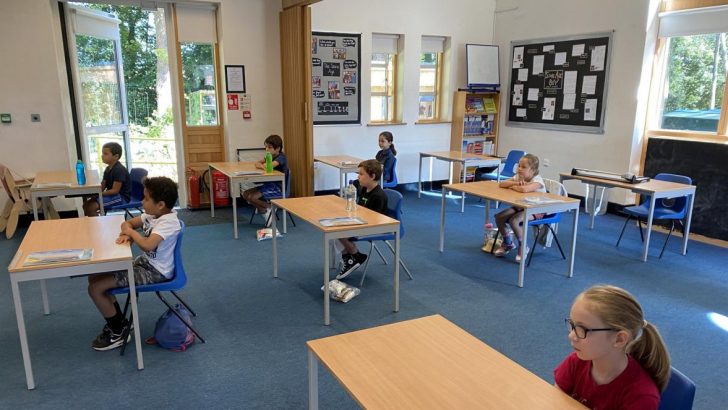The View
Like all other Catholics in Dublin last weekend, I was unable to attend Mass due to the level three restrictions designed to lower the numbers of Covid-19 cases. Although during the original lockdown I was very grateful to have live streamed liturgies, nothing replaces worshipping in a real-life community.
Still, it is amazing how quickly we adapt to new realities. For example, it felt slightly odd to be viewing a celebration of Mass without wearing a mask and even odder to be able to sing along with the hymns.
As a second-level teacher, I find it strange that I cannot attend Mass in a carefully spaced and supervised environment where everyone who is not from the same household sits two metres apart.
Yet I am expected on Monday to teach in a school where hundreds of teenagers sit a mere metre apart in classes, cheerfully mill together centimetres apart when moving classrooms, and often ignore social distancing completely once they leave school.
Currently, 15-24 year olds currently account for 22% of cases. It is not unreasonable to suggest that at least some of the transmission among 15-18 year olds is due to mixing in school.
Heroic effort
I find the inconsistency particularly strange given that most parishes with which I am familiar have made a heroic effort to implement the necessary Covid-19 restrictions. There is no evidence that outbreaks are happening as a result of church attendance.
It is sad but it is our reality for the next few weeks. Kildare, Offaly and Laois have already experienced this kind of mini-lockdown and it is likely to become a feature of our lives for the next year or more.
Already, there is evidence from the Iona Institute/Amarach research that some people are not going to return to Mass in churches. Even those who had the habit of going regularly rapidly develop the habit of not going. The Amarach poll shows that 4% of those who attended Mass before the crisis don’t plan on returning, while 19% are unsure.
Those figures will only rise if increased restrictions happen on a regular basis.
What can churches do? Luckily, many parishes are still in a position to stream services but I think more is needed. Some bishops made tremendous use of social media, for example, Archbishop Eamon Martin. iCatholic continues to do sterling work, not only preparing children for the sacraments but providing lively programming.
Parishes are going to have to get used to a hybrid ministry, where the online aspect of mission becomes more important.
Archbishop Alexander Sample [pictured right] of Portland, Oregon, has conducted Friday Chapel Chats from his personal chapel. He begins with the Angelus and follows with a short message which often includes commentary on current events in the light of the gospel. For example, on July 24, he discussed the violent demonstrations, rioting and looting in Portland. He avoids politicising issues but also makes it clear both that being Catholic demands a commitment to justice and peace, and that prayer is central to our lives. His chapel chats are low budget but popular and could be emulated by many parishes.
There is also an opportunity to start virtual book and film clubs. A parish could decide, for example, to get a group to watch The Chosen (which I wrote about recently in The Irish Catholic) and to have an online discussion afterwards. Money is tight in parishes but a subscription to Word on Fire is still good value and Bishop Barron’s videos could be viewed and discussed in a similar way.
Just as we found volunteers to steward and to clean, we will need volunteers to begin evangelising a rapidly secularising society”
At the same time, in very difficult circumstances, we need to keep parish life alive, too. We can no longer have the community-building cup of tea after Mass. Simple things like prayer boards, where people can pin their prayer requests and know that there is a whole church community praying for them, can have a big impact. These can be both real-life bulletin boards and also have a virtual counterpart online.
In the long-term, we will need to ask people to help to rebuild. Just as we found volunteers to steward and to clean, we will need volunteers to begin evangelising a rapidly secularising society.
Practical problem
There is also a practical problem. Church collections both inside and outside the church have plummeted. Crosscare in Dublin, a really vital part of Catholic outreach, had their major church collection last weekend, just as the churches were closed again. The reduction in donations will have a devastating impact on their services.
Similarly, St Vincent de Paul and hundreds of other charities are losing out. Not to mention that priests, already often on wages lower than minimum wage, have also taken pay cuts. In the short term, this is one practical thing we can do – donate to these good causes.


 Breda O'Brien
Breda O'Brien Children respecting social distancing
in school...why isn’t this good
enough for churches in Dublin?
Photo: SWNS/The Times
Children respecting social distancing
in school...why isn’t this good
enough for churches in Dublin?
Photo: SWNS/The Times 